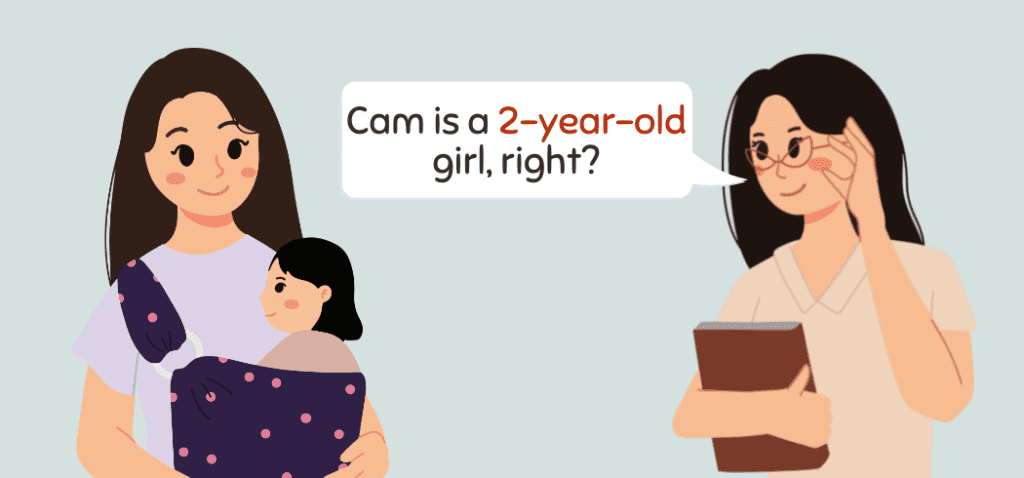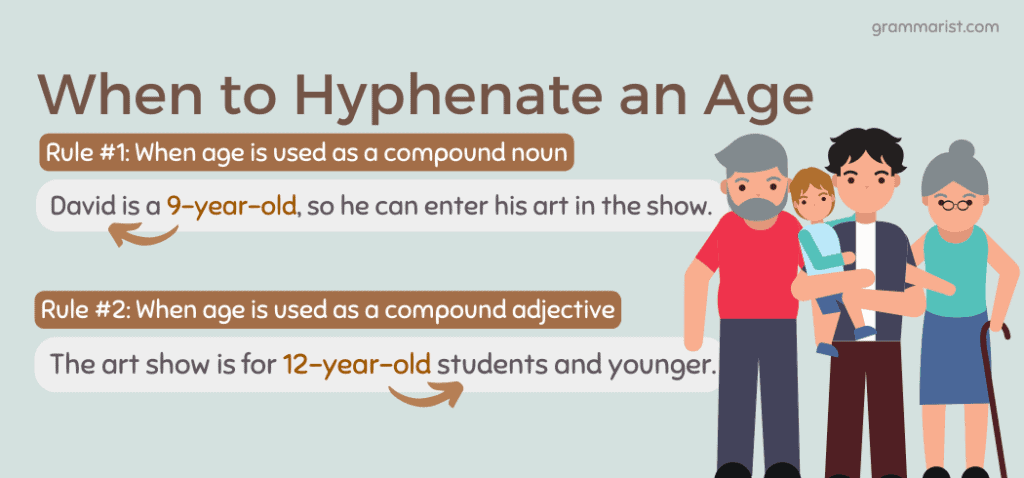Are you confused about when to hyphenate ages in a sentence?
When relating the age of a person or thing in a sentence, you may have to hyphenate it. But do you know when it is “year old” or “year-old” with a hyphen?
I find that the majority of my students struggle with remembering when to use a hyphen with an age modification and when not to. Even though the incorrect use might not confuse the sentence, it would be grammatically incorrect. However, there are a few simple rules you can follow to help you get it right every time.
What Is the Purpose of a Hyphen?
The hyphen (-) punctuation mark connects numbers, compound words, and word elements in a sentence to draw attention to their relationships to each other.
It is a widely used mark in both informal and formal writing. Its use to connect words and numbers provides clarification and conciseness to your readers.
Rules of Hyphens and Numbers
Even though a hyphen has many rules associated with its use, there are only a few rules concerning number use, age, and length of time. These include the following:
Compound Numbers Are Separated by a Hyphen
Any compound number includes a hyphen between each separate number.
For example:
- We held a fifty-first surprise birthday party last night.
- There are thirty-one posts on the ocean pier from which you can fish.
An Age or Length of Time Expressed as Adjectives
When age or length of time is expressed as an adjective in a sentence, either before a proper noun or as a substitute for a noun, it should be hyphenated. Also, the rule applies whether the number is spelled out or written as a number.
For example:
- Happy was a thirty-two-year-old horse.
- Maggie is an 18-year-old horse.
- Sarah is a nine-year-old.
- Mary is a 10-year-old girl.
When to Hyphenate an Age
The above rules can be summed up quite nicely in three forms using age to modify a noun.
Rule #1: When age is used as a compound noun
When age is used as a substitute for a noun, it must be hyphenated.
For example:
- The Junior Open Class Art Show was for twelve-year-olds and younger.
- David is a 9-year-old, so he can enter his art in the show.
Rule #2: When age is used as a compound adjective
When age is used as a compound adjective to modify a noun, it must be hyphenated. Note that the modification is placed BEFORE the noun it describes.
For example:
- The art show is for 12-year-old students and younger.
- As a nine-year-old boy, David can enter his art in the show.
When Not to Hyphenate an Age
The last rule of hyphenating ages is when it is used as a predicate adjective. Even though you might see a hyphen included to combine a compound number, it is not used when describing an age.
Rule #3: When age is used as a predicate adjective
A predicate adjective follows a linking verb to describe the sentence’s subject. When age is used as a predicate adjective, only the compound numbers are hyphenated, not the age.
This is because you are simply stating the age of something, not using it as a substitution. Note that the age is placed AFTER the noun it is putting an age on.
For example:
- The judge is twenty-three years old and just graduated from art school.
- The winner is only seven years old.
Let’s Review
The addition of age in your writing provides detail or description of a noun. Hyphenate age when used as a substitution for a noun or is placed before a noun to serve as a noun modification.
Do not hyphenate age if it comes after a noun, and only states the age of the noun, not modifying it.



Comments are closed.